Discover The WW2 Podcast
The WW2 Podcast

300 Episodes
Reverse
Pearl Harbor is often remembered as a stunning Japanese success, a perfectly executed surprise attack that changed the course of the Second World War. But what if that familiar story is wrong? In this episode, I am joined by now regular of the podcast Mark Stille to rethink one of the most famous events of the war. His book Pearl Harbor: Japan's Greatest Disaster argues that the attack was not a masterstroke at all, but a tactical disappointment, an operational failure, and ultimately a strategic catastrophe for Japan. Mark's book is also available on Audible and Spotify. patreon.com/ww2podcast
For this episode, I am joined by Philip McCarty to discuss his book Point of Failure: British Army Brigadiers in France and Norway, 1940 . It is a study of the brigadiers who served in France and Norway in 1940. Rather than focusing on campaign narratives, Philip examines the men who held this rank. Their backgrounds. Their training. The influence of networks, regimental culture and staff college upon their careers. And what happened to them after the defeats in France and Norway? This is a fresh way to approach the early-war British Army, offering insight into how the institution thought about leadership, promotion, and responsibility at a moment of intense pressure. patreon.com/ww2podcast
In September 1939, during the German invasion of Poland, American photographer and film-maker Julien Bryan became the only foreign journalist to remain inside Warsaw during the Nazi siege. While other correspondents fled, Bryan stayed in the city, documenting the Siege of Warsaw from the streets, hospitals and civilian shelters as German bombs fell. Bryan's photographs and film captured the impact of the Second World War on civilians, showing wounded men, women and children, devastated neighbourhoods, and the resilience of ordinary Polish people under attack. His footage became some of the first uncensored images of Nazi aggression shown in the United States and Western Europe, shaping how the war in Poland was understood abroad. In this episode of the WW2 Podcast, I am joined by historian Pete Zablocki, host of the History Shorts Podcast and author of a recent article on Julien Bryan for WWII History Magazine. We explore why Bryan chose to stay in Warsaw, how he worked under constant danger, how his photographs and film escaped occupied Poland, and why his record of the 1939 Siege of Warsaw remains historically vital today. patreon.com/ww2podcast
Today, we are heading back to the Burma campaign, but through a slightly different lens. Rather than focusing on a single battle or operation, we examine three men who shaped how the war in Burma was fought and ultimately won. When people think of British commanders in the Far East, one name usually stands out: Bill Slim. His leadership of the Fourteenth Army and the victories at Imphal, Kohima and the advance into Burma rightly secure his place among Britain's most successful wartime commanders. Claude Auchinleck is also well known, though more often for the Middle East than for his crucial role in India during the later war years. But there is a third figure who is far less familiar, Reginald Savory. He was not a battlefield commander in the popular sense, but his influence on training, doctrine and the transformation of the Indian Army was profound. Without the changes he helped drive, the victories of 1944 and 1945 would have looked very different. Today, I am joined by Alan Jefferys and Raymond Callahan, authors of Churchill's Forgotten Generals: Victors in Burma. In the book, they bring these three careers together, showing how Auchinleck, Slim and Savory were shaped by the Indian Army, how they learned from early defeat, and how their combined efforts turned Burma from disaster into success. What makes this story so compelling is that it is not just about command at the front. It is about institutions, training, morale and the hard work of learning how to fight a modern jungle war. patreon.com/ww2podcast
This episode looks at a very different side of the Second World War. Not the battlefield, but captivity. It focuses on the experiences of Allied prisoners of war held in German camps and how they tried to survive, adapt, and maintain a sense of purpose behind barbed wire. I am joined by Midge Gillies, author of The Barbed Wire University. A newly revised edition was released in 2025. Her book explores the lives Allied POWs led in captivity, from the routines and hardships of camp life to the ways prisoners supported one another and resisted the effects of long-term imprisonment. Education forms part of this story, but it sits alongside a wider picture of how men coped with boredom, uncertainty, hunger, and the psychological strain of captivity. Together, we discuss how prisoners organised themselves, how knowledge and skills were shared, and what these improvised communities reveal about resilience and identity under extreme conditions. patreon.com/ww2podcast
In this episode, I talk with Erik Kreps about a remarkable family mystery. Erik's grandfather, Colonel Kenneth Ray Kreps, served in the Second World War, and after returning home, he sealed his wartime belongings in a chest with the instruction that it was not to be opened until after his death. For decades, the chest remained closed, and no one in the family knew what it contained. After Colonel Kreps died, the chest was put into storage and almost forgotten. At one point, it was nearly auctioned off, which could have meant the contents were lost forever. Instead, it was saved, and when it was eventually opened, it revealed letters, photographs, medals, and documents that reshaped Erik's understanding of his grandfather and the life he lived during the war. You can find Erik on X at @Veiled_Valor where he shares updates about the discoveries along with occasional posts about others connected to the story. Here is a link to a set of slides featuring images of the chest contents and further material on Colonel Kreps. patreon.com/ww2podcast
RAF Liberator bombing operations in India, Burma, and Thailand remain one of the least explored air campaigns of the Second World War. Flying long-range missions from Bengal, RAF crews attacked Japanese targets across Southeast Asia, including the infamous Thailand-Burma Railway, under demanding and often dangerous conditions. In this episode of the WW2 Podcast, I am talking to historian Matt Poole, author of Far East RAF Liberators: Attacking the Japanese: Roy Andrews and 215 Squadron. Together, we explore this campaign through the experiences of Roy Andrews, a Royal Australian Air Force wireless operator and air gunner who flew with RAF 215 Squadron on B-24 Liberator bombers during the final months of the war. Between October 1944 and April 1945, Roy Andrews flew bombing, strafing, and air-sea rescue missions over Burma and Thailand. By viewing the wider RAF air war through the lens of one airman, this episode examines long-range Liberator operations, low-level attacks, and daily life on a forward airfield in India, offering a personal perspective on an often overlooked chapter of the Second World War. patreon.com/ww2podcast
For this episode of the podcast, we are doing something a little different. Rather than focusing on a single subject, we open the floor to your questions. Over the past few weeks, podcast patrons were invited to submit questions they had always wanted to ask about the Second World War. These range from strategy and leadership to memory, myth and the smaller details that continue to provoke curiosity today. To help answer those questions, I am joined by two returning guests. John McManus is a military historian specialising in the United States Army in the Second World War. He is the author of numerous books and is known for combining operational history with the lived experience of soldiers on the ground. Also joining the discussion is Kevin Hymel. Kevin is a historian and biographer of General George S Patton, with the third volume of his trilogy due for publication in 2026. He is also an experienced battlefield tour guide. John and Kevin are the hosts of the podcast WW2 Live, which features a regular segment called 'Stump the Chumps' in which listeners submit challenging or unusual questions. That format inspired this episode. Together they take on a wide range of listener questions, offering thoughtful and often surprising insights into how the Second World War was fought, remembered and understood. patreon.com/ww2podcast
Charles de Gaulle remains one of the most distinctive figures to emerge from the Second World War. Soldier, writer, leader in exile, and later the creator of the Fifth Republic, he played a central role in reshaping modern France. His relationship with Winston Churchill, their shared struggle during the war, and the influence both men continued to wield long after the fighting ended make him a fascinating subject. In this episode, I speak with historian Richard Vinen, author of Last of the Titans: Churchill and de Gaulle. His book explores the lives of de Gaulle and Churchill and sets their wartime partnership within a wider story of national identity, political power, and the long shadow of past greatness. Richard guides us through de Gaulle's early years, his outlook as a soldier, his time in London, and the reasons he became such a commanding presence in French public life. Last of the Titans: Churchill and de Gaulle is also available as an audiobook on Audible. patreon.com/ww2podcast
The fighting in Burma during the Second World War was among the most demanding of the entire conflict. Soldiers faced dense jungle, monsoon rains, disease, and a determined enemy — conditions that made the campaign both brutal and complex. Yet for decades, Burma remained one of the least remembered theatres of the war. The men who fought there — British, Indian, African, and Burmese — became known as the "Forgotten Armies." A new exhibition at the National Army Museum in London, Beyond Burma: Forgotten Armies, seeks to change that. It explores not only the campaign itself but also the wider human and political stories that emerged from the fighting in Southeast Asia. In this episode of the WW2 Podcast, I visit the museum to speak with Dr Alan Jeffreys, Head of Equipment and lead curator of Beyond Burma. We discuss the exhibition, its themes, and the challenge of bringing this complex history to life. patreon.com/ww2podcast
By late 1942, after the success of Operation Torch, the Allies had finally gained a foothold in North Africa. What followed was a hard-fought and often overlooked campaign in Tunisia. For six months, British, American, and French forces battled determined Axis troops for control of the last corner of Africa held by Germany and Italy. It was a campaign marked by tough lessons, uneasy cooperation, and moments of heroism — one that would shape how the Allies fought together for the rest of the war. In this episode, I'm joined by historian and author Saul David to discuss his latest book, 'Tunisgrad: How the Allies Won North Africa and Set the Stage for D-Day'. Saul brings to life the soldiers, commanders, and decisions that defined the Tunisia campaign and paved the way for the Allied invasion of Europe. patreon.com/ww2podcast
By the autumn of 1944, the Allies had driven across France and Belgium and reached the borders of Germany. Ahead of them lay the Rhine — a vast natural barrier and the last line of defence protecting the heart of the Reich. What followed was some of the most intense and costly fighting of the war in Western Europe. From the bitter battles around Aachen and the Hürtgen Forest, through the crossing operations of Plunder and Varsity, to the dramatic capture of the bridge at Remagen, the campaign for the Rhineland was brutal, chaotic, and often overshadowed by the more famous Battle of the Bulge. Yet it was here, on both sides of the Rhine, that the final collapse of Nazi Germany truly began. To help tell that story, I'm joined by military historian Anthony Tucker-Jones, author of Rhineland, which charts the campaign from the German border battles of late 1944 through to the end of the war in 1945. Rhineland is also available on Audible and Spotify. patreon.com/ww2podcast
In the aftermath of the Second World War, the Allies brought twenty-four of Hitler's most senior figures to justice at Nuremberg. Among them was Hermann Göring — once Hitler's designated heir and still a commanding presence, even in defeat. Before the trial began, the U.S. Army assigned a young psychiatrist, Captain Douglas Kelley, to assess whether these men were mentally fit to stand trial. For Kelley, it was the professional opportunity of a lifetime: a chance to explore the minds of the Nazi elite and discover what made them capable of such atrocities. What he found was far more complex and unsettling than expected. Kelley's professional curiosity evolved into a disturbing psychological duel, especially with Hermann Göring — a man both monstrous and magnetic, whose personality thrived even in captivity. In this episode, I speak with Jack El-Hai, author of The Nazi and the Psychiatrist: Hermann Göring, Dr. Douglas Kelley, and a Fatal Meeting of Minds at the End of WWII. Jack draws on Kelley's long-hidden papers and medical records to tell this extraordinary story, which has also inspired the upcoming 2025 film Nuremberg. Please note that this episode includes a discussion of suicide, which some listeners may find distressing. patreon.com/ww2podcast
In this episode of the WW2 Podcast, I'm joined by Robby Houben from the Belgian Royal Military Museum to discuss the Renault FT. This small but revolutionary French tank changed armoured warfare. Designed during the First World War, the FT introduced the fully rotating turret and tracked layout that became the blueprint for every tank that followed. We talk about its design, its service life between the wars, and how it was still seeing action when the Second World War began. You can see an original Renault FT on display at the Belgian Royal Military Museum in Brussels. Robby also shares his passion for armoured vehicles on YouTube — check out his channel Two Dudes Talking Tanks. If you enjoy the show, remember — it's just me here behind the mic. I research, record, and edit every episode myself. Your support on Patreon helps keep the podcast going. Patrons get ad-free listening and bonus excerpts from interviews that didn't make it into the main episodes. Find out more at patreon.com/ww2podcast
General Lucian K. Truscott was one of the United States Army's most capable commanders of the Second World War. Known for his aggressive leadership and determination, Truscott led American forces in North Africa, Sicily, at Anzio, and later in southern France and Germany. Despite his impressive record, he remains one of the lesser-known U.S. generals of World War Two. In this episode of the WW2 Podcast, I'm joined by military historian Glyn Harper, emeritus professor of war studies at Massey University in New Zealand. Glyn is the author of General Lucian K. Truscott: "Quite a Talent for Fighting", a new biography that explores Truscott's remarkable career and lasting contribution to the Allied victory in Europe. patreon.com/ww2podcast
In early 1945, the Allies were advancing in Burma after their hard-won victories at Kohima and Imphal. The focus shifted to the Arakan, a region of dense jungle, mangrove swamps, and unforgiving terrain. For the men sent there, disease, supply difficulties, and the monsoon were as formidable as the Japanese defenders. Among the formations deployed was Britain's 3 Commando Brigade, working alongside Indian and West African divisions of XV Corps in a campaign that tested endurance as much as combat skill. In this episode of the WW2 Podcast, I'm joined by military historian Lucy Betteridge-Dyson. Lucy is the author of Jungle Commandos: The Battle for Arakan, Burma 1945, which tells the story of the Commandos who fought in this overlooked theatre, culminating in the ferocious struggle for Hill 170. Drawing on first-hand accounts, her work reveals the realities of jungle warfare and the contribution of these specialist troops to the final Allied victories in Burma. Jungle Commandos is also available on Audible and Spotify. patreon.com/ww2podcast
When we think of the Second World War, the story is so often told through an Anglo-American lens: Britain holding out alone in 1940, the United States joining the fight in 1941, and the combined Allied effort that followed. But this perspective tends to overshadow the contributions of other nations, particularly Canada. Canada was not usually regarded as a global military power, yet its role in the war was both significant and far-reaching. From the skies over Europe to the convoys crossing the Atlantic and the soldiers who landed on D-Day, Canadian forces made an impact far greater than their country's population might suggest. In this episode of the WW2 Podcast, I am joined by historian David Borys to look more closely at Canada's military in the Second World War. We discuss how Canada approached the conflict, the part it played within the wider Allied war effort, and how its contribution is remembered today. David is a Canadian academic, author of Punching Above Our Weight: The Canadian Military at War Since 1867, and host of Curious Canadian History. His new podcast, Conflict and Culture, explores the intersections of war and society, and we'll touch on that later in our conversation. patreon.com/ww2podcast
Douglas MacArthur was one of the most prominent — and controversial — generals of the Second World War. As Field Marshal of the Philippines, he withdrew to Australia in 1942, famously declaring, "I shall return." That promise became central to his reputation and shaped the rest of his war. How far did MacArthur's vow influence his actions? Was he an effective commander, strategist, and leader in the Pacific campaign? These questions continue to divide historians. In this episode of the WW2 Podcast, I'm joined by Peter Mansoor, author of Redemption: MacArthur and the Campaign for the Philippines. We discuss MacArthur's leadership in the Second World War, his successes, failures, and his lasting legacy. patreon.com/ww2podcast
By January 1945, the war in Europe neared its final phase. In the west, the Allies had repelled the Ardennes offensive. In the east, the Red Army prepared the Vistula–Oder offensive, a huge strike that pushed German forces out of Poland. The Soviet advance carried them to the very gates of Berlin. The Vistula–Oder offensive in 1945 liberated vast areas, including Auschwitz. It also created the springboard for the final assault on Germany. Stalin wanted more than battlefield victory. He pushed Soviet borders west, reclaimed imperial lands, and shaped Poland's fate before the war ended. The Wehrmacht resisted fiercely. German forces launched a desperate counterattack, their last major armoured offensive on the Eastern Front. In this episode of the WW2 Podcast, I talk with Prit Buttar, author of Into the Reich: The Red Army's Advance to the Oder in 1945. Into the Reich is also available on Spotify and Audible patreon.com/ww2podcast
The Maginot Line was one of the most ambitious defensive projects of the 1930s. Built along France's eastern border, this vast system of underground forts, tunnels, and bunkers included hospitals, kitchens, telephone exchanges, electric railways, and turrets that could rise from the ground to strike at attackers. Designed to withstand artillery and even chemical weapons, it represented the cutting edge of military engineering. Yet when Germany invaded in May 1940, France fell in just six weeks. The Maginot Line has since become a byword for failure — an expensive defensive shield that seemed useless against Blitzkrieg. But was it really such a mistake, or have we misunderstood its role in the Second World War? In this episode of the WW2 Podcast, I'm joined by Professor Kevin Passmore, author of The Maginot Line: A New History. Together, we explore how the defences were built, how they performed in 1940, and what the Maginot Line can really tell us about the fall of France. patreon.com/ww2podcast







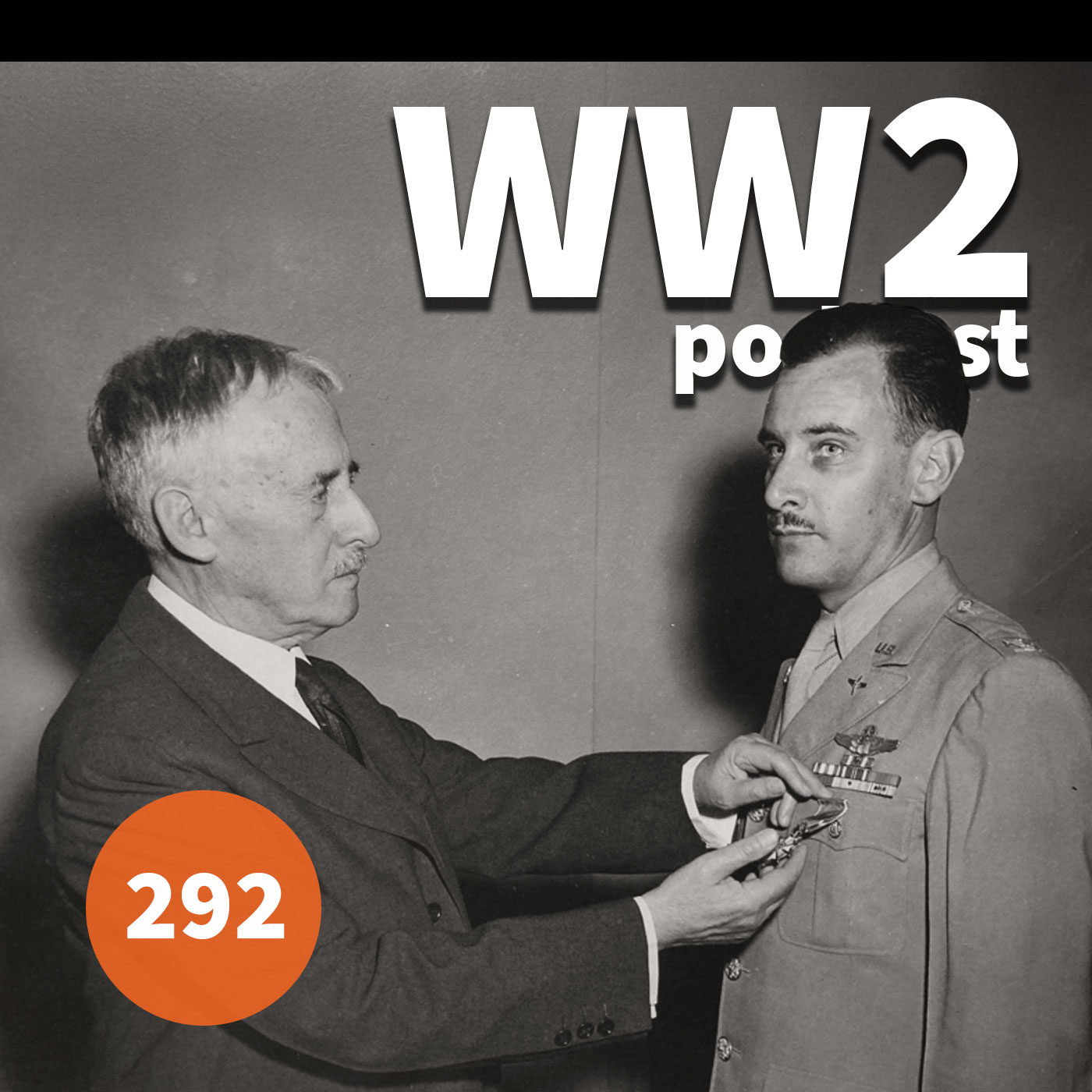

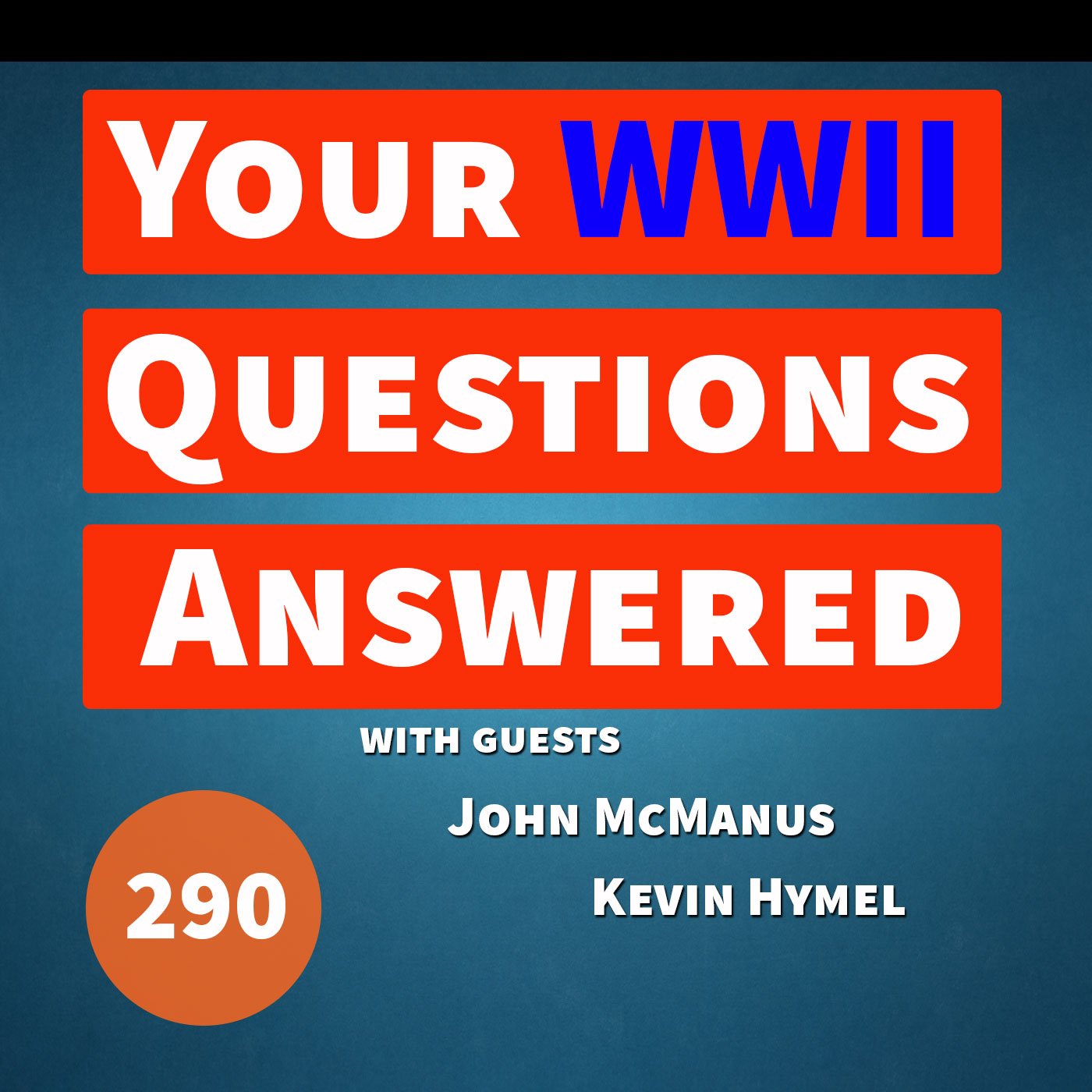
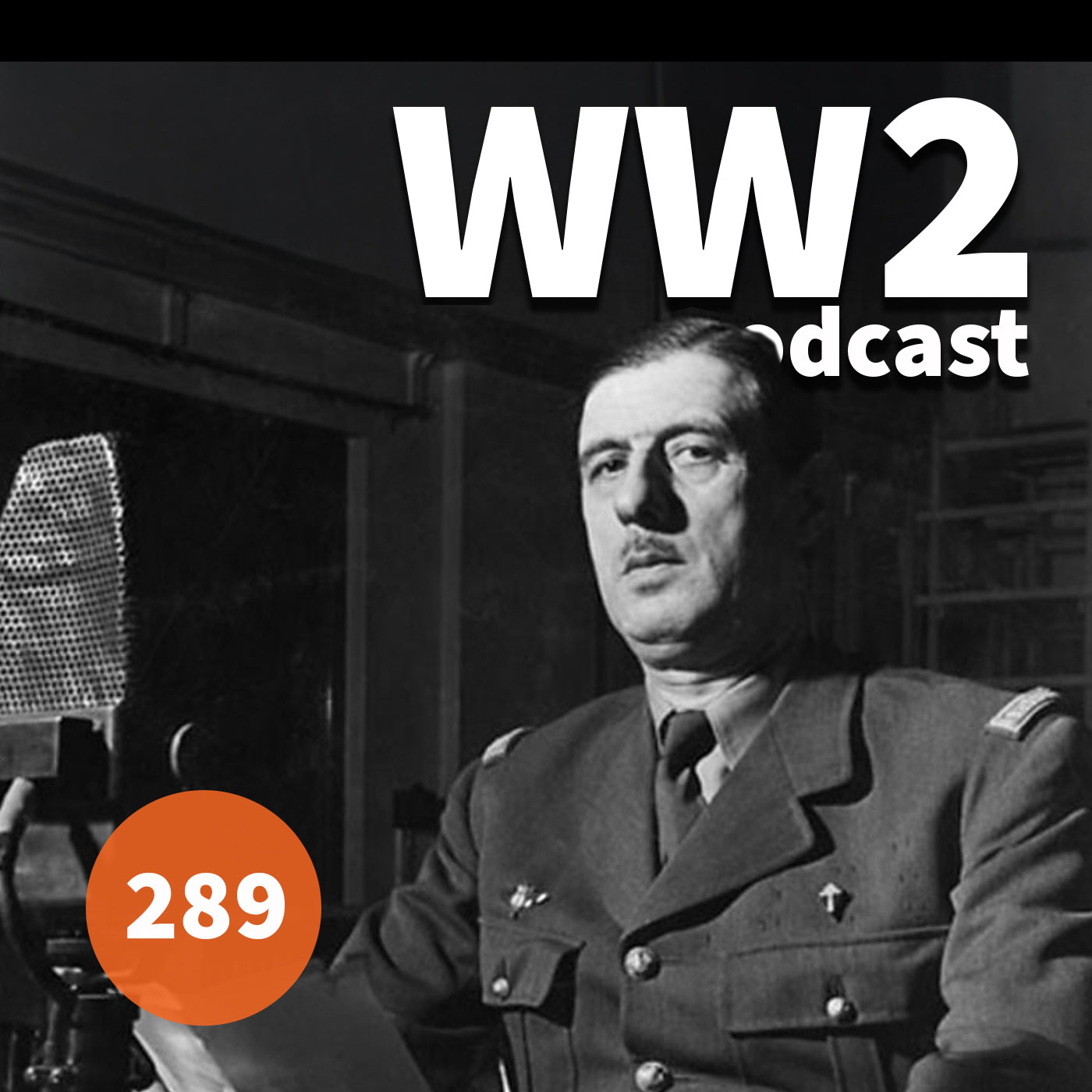
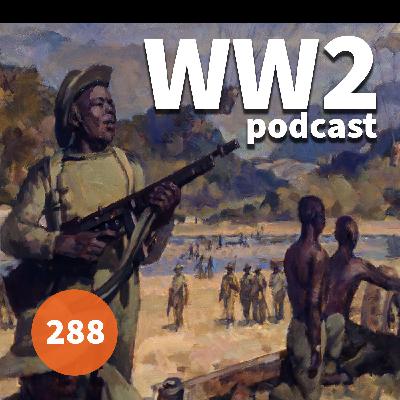
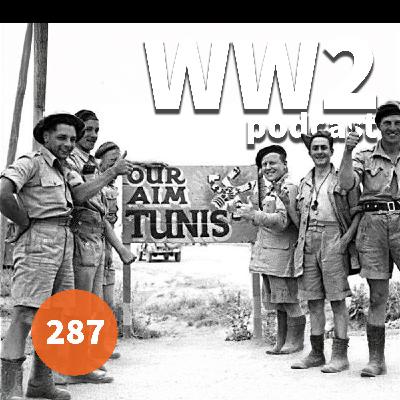
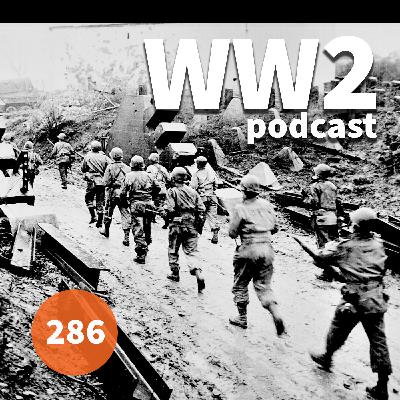


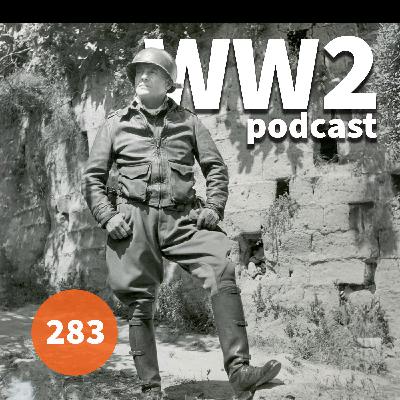
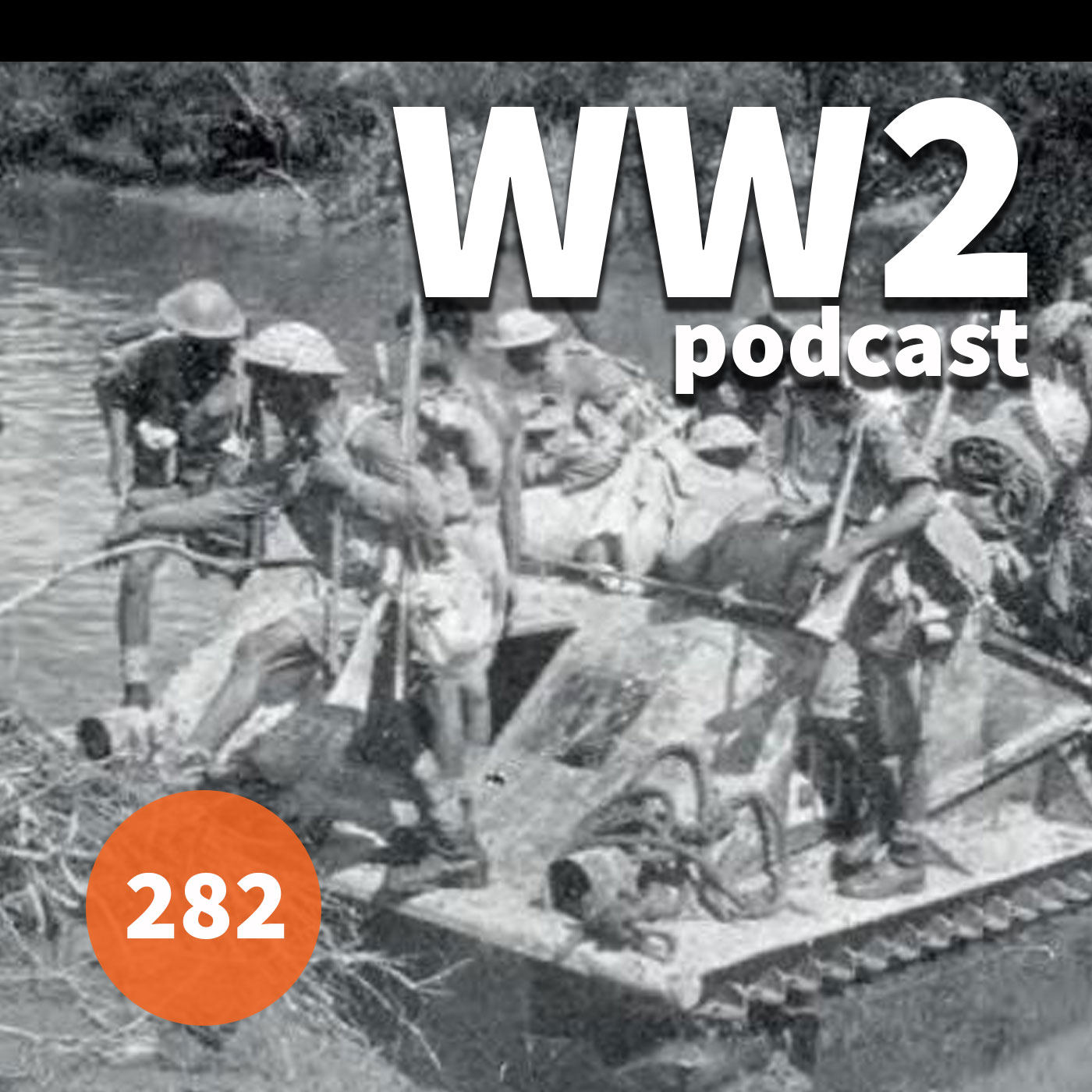

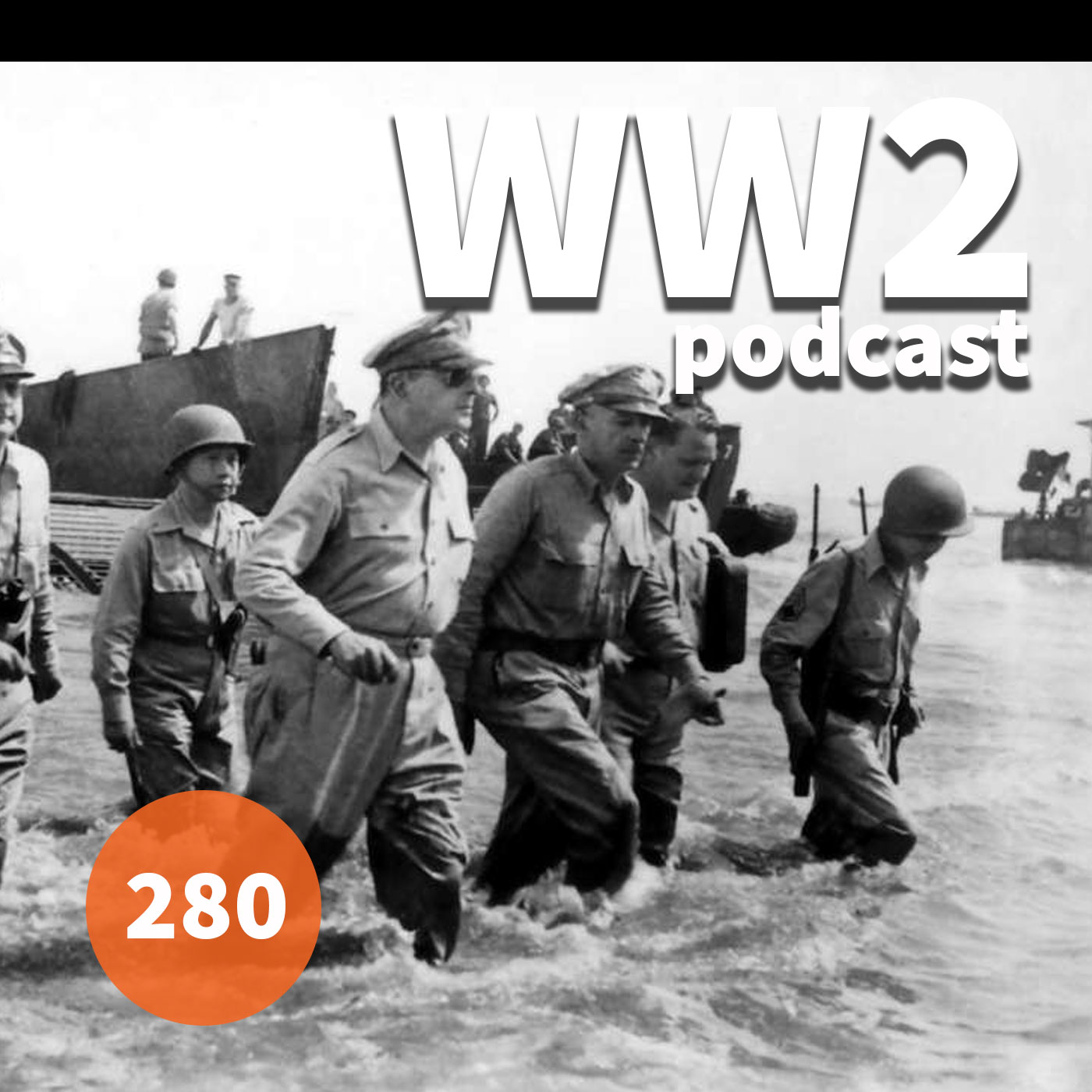
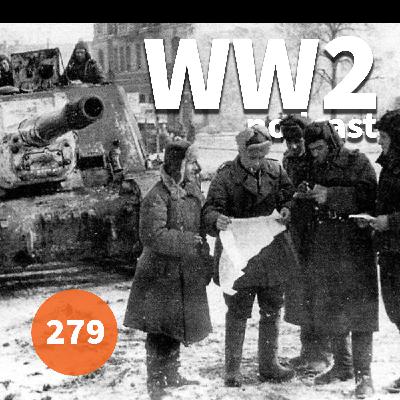




Hi. Agent Zo certainly was The Real Deal for the Polish Resistance. However as far as "firsts" go & equal female contribution to Resistance efforts (albeit mostly in France) it's hard to overlook The White Mouse...KIWI-BORN Nancy Wake.
One of the best episodes yet. Great work
Fascinating, I allways look forward to the boys own stories, but it is often the less obvious stories or podcasts that are the best.
🔴✅📺📱💻ALL>Movies>WATCH>ᗪOᗯᑎᒪOᗩᗪ>LINK>👉https://co.fastmovies.org
I assumed this woild be about the 442nd RCT, but it's primarily about internment. And it's an excellent episode.
First the bloke says Kesselring was a sound commander, and then he says he was a great commander. Tell him to make his mind up. Montgomery became commander of the 8th Army after the sacking of Auchinleck and the death of Gott. He did not push them out of the way. Stupid comment. in addition, if plans are good, why not use and realise them successfully. Foolish not to - no point in starting from square one if you have inherited good prep. The interviewee has an agenda against Montgomery and bleats on about him every time he's on.
have to do a story on the devil's brigade and a man named tommy prince
I love army men I have 250 army men .
The pacific was a great mini-series
By far, the most interesting WW2 Podcast I've ever listened to. Provides explicit detail on certain details.
Certainly one of the most complicated and fascinating figures of the prior century.
Mr Hooten is very annoying and needs to understand that while he knows his subject we don't know what he is talking about. Needs to calm down, finish his sentences, stop interrupting and answer the questions.
Definitely a topic I've heard very little of.
very interesting episode but I am SICK TO DEATH of the Monty bashing. Yes, an egotist - we all know that so why bleat on and on and on about it. Find a successful commanding officer proven to be without one.... Unlike many, he owns uo to his errors in his autobiography. As to regarding him as a loser..... REALLY ?
As always another great episode
Angus thanks for your podcasts! Really enjoy them, and if there's the odd one that's outside my interest bubble (which is rare), I move to another. Really appreciate your efforts👍
Wow...thanks for Britsplaining Juno Beach.
nice
love this guest ... interesting and informative stuff about Hiroshima journalism
I never knew that Jimmy Stewart ending up being a Brigadier general.